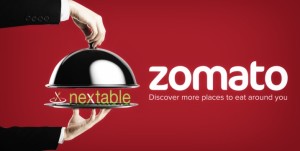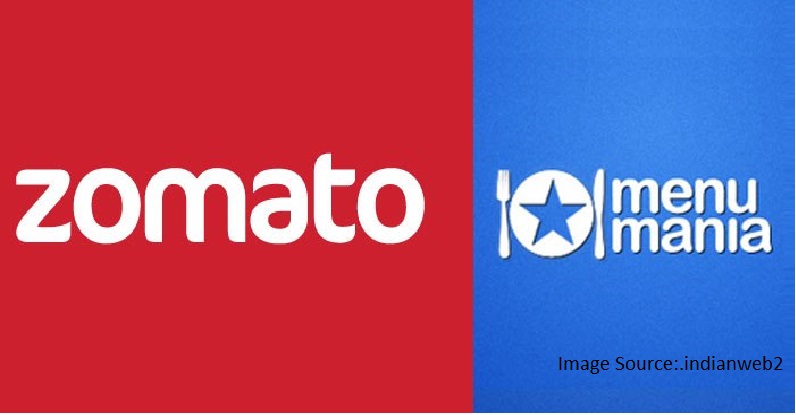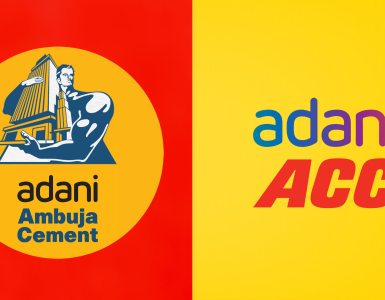ZOMATO:
Deepinder Goyal, a post-graduate of IIT Delhi, started Foodiebay.com as a small exercise to help his colleagues negotiate huge stacks of menu cards with ease. Foodiebay officially started in July 2008 with a list of 1,200 restaurants in the Delhi and continued expanding. By June 2010, the website broke even and had expanded its reach to Bangalore and Pune. That is when Info Edge (India), the parent company of the Naukri.com group, invested 4.7 crores in the business. In November 2010, Foodiebay.com was renamed Zomato.com. The brand name was changed due to a possible move outside of the food vertical and also to avoid a possible conflict with eBay because the earlier brand name Foodiebay contained “eBay” in it. Deepinder’s juniors from college, Pankaj Chaddah, and Gunjan Patidar are now chief operating officer and chief technology officer of the Company.
Today Zomato is present across 12 countries and has its headquarters in Delhi. Zomato is India’s largest restaurant guide listing over 42,000 restaurants across 12 cities in the country and currently employs approximately 150 people.

MENUMANIA:
Menumania was founded in 2006 by Cristian Rosescu in New Zealand, who was later joined by his wife Karen Gibson. Cristian founded Menu Mania Ltd in July 2006. Prior to MenuMania, Cristian was working at Enabling as a web developer. He left Enabling in the autumn of 2006 to create MenuMania. Karen has 9 years experience working with business owners to successfully grow their customer base by developing marketing/advertising strategies that work. She worked for 6 years as a Media & Marketing Consultant with The Radio Network and has been General Manager of Business Development of Menumania since 2008.
Menumania is one of the most prominent players in New Zealand and has been around for almost 8 years. The company employs four people, including Karen.

USP of Zomato:
Zomato has an exhaustive range of menus and regularly updated information for over 42,000 restaurants across 12 major cities of India and 4,000 restaurants in Dubai. By providing menus, pictures, locations, ratings, reviews it ensures that its users find every piece of information about the restaurant they are looking for. A clean and simple interface across mediums enables users to get what they want in three simple steps. Users can also access Zomato wherever they are – be it online/on their smartphones/via the print guide. The social features also give it an edge as users can engage with other foodies on Zomato and discover places to eat around them through user recommendations.
The USP of Zomato which differentiates it from rest of the rating and review sites is:
- The availability of complete menus for almost all restaurants.
- Information on the expected bill
- The ability to search for a particular dish within a given area
- The number of search and filter options Zomato provides – city, areas within the city, cuisine, popularity, cost for two, ratings, etc is very comprehensive.
USP of Menumania
Menumania according to its founders is:
- a customizable, community-based restaurant guide built around the all-mighty menu
- real people, writing real reviews
- an entertaining and interactive place for the fervent or out-spoken individual to share about their eating-out experiences
- a powerful tool for marketing via ‘word of mouth’
THE ACQUISITION…how it happened:
Zomato’s country manager for New Zealand Sahil Ludhani met the founders of MenuMania over a beer in New Zealand. Ludhani’s proposition was that Zomato acquires MenuMania and both companies enjoy the synergies from such a deal. While Zomato is not even a year old in the New Zealand market, MenuMania is an established eight-year-old firm with a much bigger subscriber base and restaurant listings. The founders of MenuMania, Cristian Rosescu, and Karen Gibson were interested but they were very wary and skeptical about starting a discussion on acquisition with a competitor. After much due diligence and board approvals, the deal finally went through late last month for an estimated INR 50 Mn – an all cash deal.
ADVANTAGES:
Started in 2008, Zomato has been on the lookout to acquire companies ever since it raised about Rs 227.6 crore ($37 million) from Sequoia Capital and existing investor and majority shareholder, Info Edge late last year. In its bid to become a major player globally, the stiffest challenge comes from San Francisco-based Yelp, which has also incidentally started operations in New Zealand last year.
- With the acquisition, the combined entity will be very powerful in the New Zealand market.
- Menumania will provide a big boost for Zomato’s relatively new business in New Zealand. Combined, they will be able to offer the users a large number of reviews and menus, all in one place, making Zomato the de-facto choice for users in New Zealand.
- The acquisition will help Zomato provide tough competition to rivals like San Francisco-based Yelp who have recently set up business in New Zealand as well.
- Both companies will integrate their knowledge on a common platform and their user base to take advantage of the acquisition and expand
- The Menumania website will eventually migrate to Zomato.co.nz to
maintain a single identity. - Zomato and Menumania will be the largest resource of restaurant information in New Zealand.
FUTURE PLAN:
Zomato plans to expand to 22 more countries in two years and consolidate the existing 12 that Zomato is already operating in. Zomato plans to follow the acquisition route in a few other markets as well. It is already in talks with 2 other Companies of Southeast Asia and Europe respectively. It also plans to enter the US, but in an innovative manner so that word-of-mouth, and not marketing, enables spread.
Zomato is also coming up with a payments product which will allow users in most Indian metros to pay restaurant bills through a mobile application and for which it will charge about 2%-3% per bill from the restaurant owner.
COMPETITION:
Zomato isn’t the only online food guide in India. There are a number of others such as Burrp, part of media conglomerate Network 18 Group. It faces intense competition in other countries, too. There is HungryGoWhere in Singapore, where Zomato does not want to operate because of stiff competition. In the United Arab Emirates, where Zomato claims to have 65 per cent market share, it has rivals such as Yadig and Timeout. And then there is US-based Yelp, which operates in 31 countries and is the biggest company in the online restaurant-listing segment with a valuation of about $4.4 billion (Rs 27,700 crore). In terms of the global footprint, Zomato now only lags Yelp in size and it will eventually come to a showdown between the two. In fact, Zomato is launching in Canada next and that will be the first time the two players will lock horns in a market where Yelp is dominating.
CONCLUSION:
Zomato Private Limited has not even completed a year of its operations in New Zealand which has over 15000 restaurants and acquired an established eight-year-old firm with a much bigger subscriber base and restaurant listings. This is Zomato’s first global acquisition. In our view the purpose of this acquisition might be two-fold: Firstly the founders of Zomato must have realized that the “time to market” is critical and hence went ahead with the inorganic approach for growth i.e. through acquisition. Secondly, as they want to expand their business in 22 more countries this might act as a test acquisition for entering into bigger markets.
Post the deal, MenuMania will be merged with Zomato within a period of six months. With the acquisition, the combined entity will be very powerful the New Zealand market. MenuMania has a phenomenal brand name in New Zealand and this deal will shorten the process of Zomato’s brand building by a couple of years.
Competitive acquisitions are very tough to execute as sometimes Companies seek information from their competition under the pretense of possible acquisition deal only to backtrack when critical details have been provided. One significant and different approach that the founder of Zomato undertook for finalizing this deal was to build a lot of trusts and reduce the skepticism of Menumania founders by opening various channels of communication and sharing as much information as possible along with clear ideas of what would happen if this deal went through. This approach of transparency and trust-building helped them to secure the deal.
Nobody knew Zomato when they were called Foodiebay.com. The founders realized the importance of a powerful “brand” name and since rechristening two and a half years back, Zomato has grown beyond many people’s wildest imagination. Till date, things have run smoothly for the founders of Zomato by taking the right steps in the right direction. The future may be unclear, but this is a moment of celebration. It is a proud moment for the Indian startup ecosystem on the whole.




